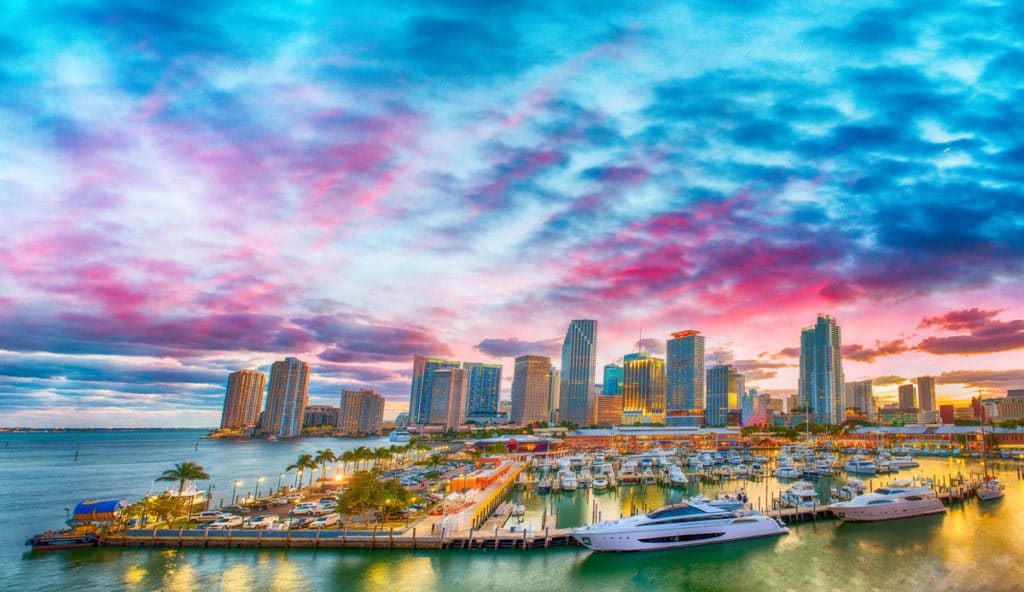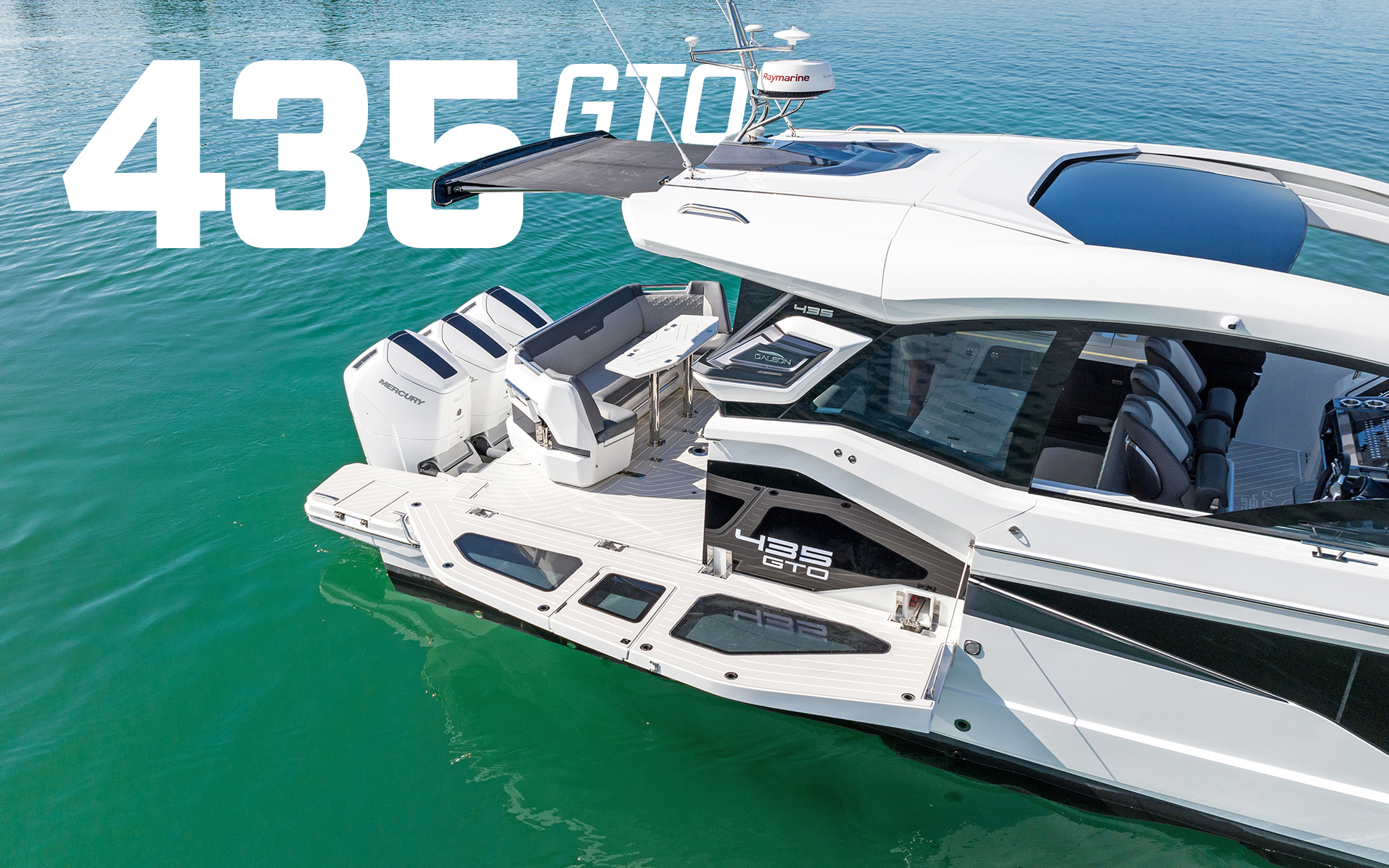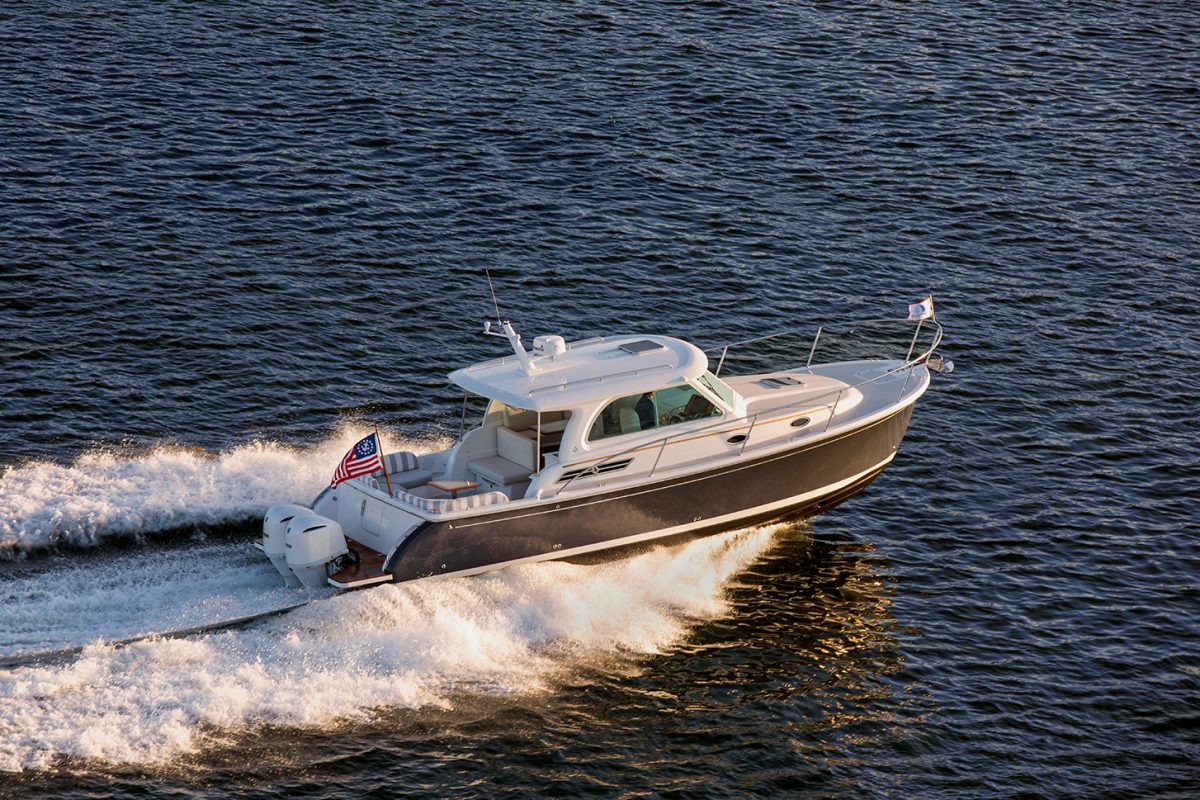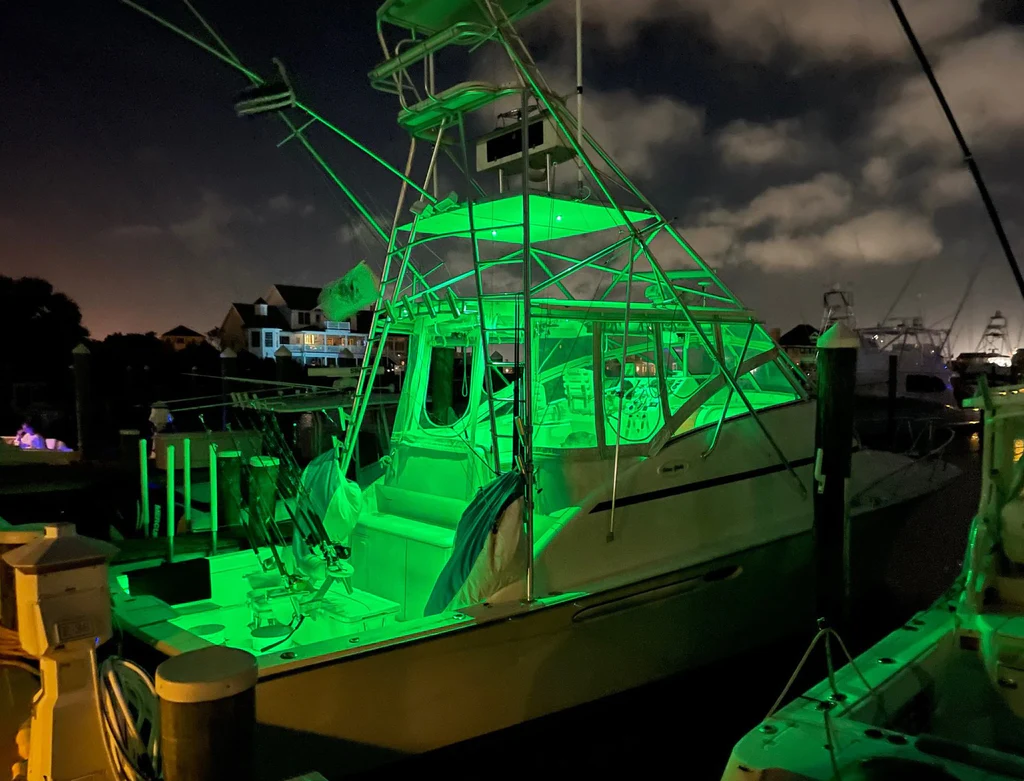Alcohol Can Reduce Color Discrimination: Boaters Beware of Green and Blue Confusion
Alcohol consumption can have various effects on one's ability to perceive the world around them. One lesser-known impact of alcohol is its capacity to reduce an individual's ability to distinguish between specific colors. This is particularly relevant for boaters, as accurate color perception plays a crucial role in navigating waterways and ensuring safety on the water.

Research has shown that alcohol can disrupt the communication between the eyes and the brain, leading to changes in color perception. The colors most affected by alcohol consumption are red and green, which can be critical for boaters to identify navigational lights, buoys, and other essential signs.
By understanding the potential dangers associated with alcohol-induced alterations in color perception, boaters can make informed decisions about their safety on the water.

Key Takeaways
- Alcohol consumption interferes with visual perception, particularly the ability to distinguish between red and green colors.
- Impaired color perception can pose significant safety risks for boaters, affecting the navigation of waterways and the interpretation of essential signs.
- Boaters should be aware of the potential dangers of alcohol consumption and take necessary precautions to ensure safe navigation and decision-making on the water.

The Impact of Alcohol on Color Perception
Alcohol consumption, especially in excessive amounts, can have a significant impact on an individual's ability to perceive colors accurately. In particular, alcohol has been found to impair the ability to distinguish between red and green colors.
This color perception impairment stems from the effect of alcohol on the visual system. The human retina contains specialized cells called cones, which are responsible for detecting color and maintaining the sharpness of our vision.
There are three types of cones, each responsible for detecting either red, green, or blue light wavelengths. Alcohol intake can adversely affect the functioning of the green and red cones, leading to difficulties in perceiving these colors.
Research conducted on young alcohol consumers has shown that the reduction in color perception ability is more significant among individuals who consume alcohol regularly. The study revealed that alcohol consumption leads to a decreased spatial luminance contrast sensitivity and color arrangement ability.
Alcohol-induced visual impairments are not limited to color perception, as the substance can also affect other aspects of vision. Excessive consumption may lead to conditions such as optic neuropathy, which can result in a painless loss of vision, decreased peripheral vision, and reduced color vision.
How Alcohol Affects Boating Safety
Impaired Judgment and Reaction Times
Alcohol consumption can significantly impair a boater's judgment and reaction times. It takes longer to receive information from your eyes, ears, and other senses, and even more time to react to them. One specific effect of alcohol on boaters is the inability to distinguish between red and green colors, which can be particularly hazardous during nighttime navigation 1.
Reduced Coordination and Balance
Alcohol also affects a boater's coordination and balance. When operating a boat, it is crucial to maintain balance to prevent accidents, especially in turbulent waters. Intoxication can lead to decreased muscle control, affecting the ability to maintain balance and perform necessary tasks while boating 2.
Dangers of Falling Overboard
Boating under the influence increases the risk of falling overboard due to loss of balance and coordination. Falling overboard can lead to serious injuries or even drowning, particularly if the person is intoxicated and unable to swim or tread water effectively. It is crucial for boaters to be aware of their surroundings and monitor their alcohol consumption to avoid such dangerous situations 3.
Boating Stressors and Alcohol
Finally, the natural stressors of boating, such as sun exposure, motion, and wind, can exacerbate the effects of alcohol on a boater's body 4. These stressors can heighten the impairment caused by alcohol, making it even more dangerous for those who choose to drink while operating a boat. Factors like dehydration and fatigue can also increase the negative impacts of alcohol on a boater and further reduce their ability to navigate safely and react to potential threats 5.
Footnotes
- https://www.boatus.org/alcohol-and-boating/effects ↩
- https://www.boat-ed.com/mississippi/studyGuide/Minimize-Risk-by-Avoiding-Alcohol/10102602_38375/ ↩
- https://www.boatus.org/study-guide/planning/bui ↩
- https://www.boat-ed.com/canada/studyGuide/Minimize-Risk-by-Avoiding-Alcohol/101199_115824/ ↩
- https://www.boatus.com/expert-advice/expert-advice-archive/2019/october/the-dangers-of-drinking-and-boating ↩
Understanding the Effects of Alcohol on the Body
Alcohol’s Path Through the Body
When alcohol is consumed, it enters the bloodstream through the gastrointestinal system and is carried throughout the body. It eventually reaches the central nervous system, where it can affect various processes, such as cognitive function, motor skills, and sensory perception. As alcohol is a depressant, it can slow down the functioning of the central nervous system.
Effects on the Nervous System
Alcohol's impact on the nervous system can vary depending on the amount of alcohol consumed and other factors, such as individual tolerance. In smaller amounts, alcohol may cause relaxation and reduced inhibitions. However, with increased consumption, it can cause impaired judgment, coordination, and vision.
For example, heavy alcohol consumption may reduce the ability to distinguish between certain colors, which can be particularly problematic for boaters navigating in low-light conditions.
Additionally, alcohol may also have more severe, long-term effects on the nervous system, leading to cognitive decline, memory problems, and an increased risk of mental health issues, as outlined by Verywell Health.
Alcohol and Dehydration
Dehydration is a common effect of alcohol consumption, as the alcohol acts as a diuretic, increasing urine production and leading to a loss of fluids that can impair the body's ability to function properly.
Signs of dehydration can include:
- Dry mouth and thirst
- Fatigue or dizziness
- Less frequent urination
- Dark-colored urine
Dehydration can also exacerbate the negative effects of alcohol on the nervous system, as it may further impair cognitive function and coordination, as well as increasing the risk of hangovers. To minimize the impact of alcohol-related dehydration, it is important to drink water or other non-alcoholic beverages alongside alcohol consumption.
Legal and Health Consequences of Drinking While Boating
Boating Under the Influence (BUI) Laws
Boating Under the Influence (BUI) is a serious offense and is punishable by law. Operating a boat while intoxicated is a federal crime, subject to a $1,000 fine.
In the United States, the legal blood alcohol content (BAC) limit is 0.08% for boat operators. Penalties for violating BUI laws can include large fines, jail time, and even suspension of one's driver's license1.
Local law enforcement agencies are responsible for enforcing BUI laws and keeping waterways safe for all users.
Alcohol-Related Boating Fatalities
Alcohol is known to impair various cognitive and physical abilities, one of which is the ability to distinguish between red and green colors2.
This impairment poses a significant hazard for boaters, particularly at night when navigation lights are essential for safe operation. Alcohol consumption while operating a boat greatly increases the risk of accidents and fatalities. In fact, alcohol is a leading contributing factor in recreational boating deaths, making it crucial for boaters to understand the dangers of drinking while boating.
Long-Term Health Risks
Aside from the immediate legal and safety consequences, long-term alcohol abuse can lead to numerous health problems. Alcoholism is associated with a higher risk of developing heart disease and other chronic health conditions3.
Moreover, excessive alcohol consumption can have negative effects on a person's mental health and family life, as well as their ability to work and maintain a stable income.
Preventative Measures and Safe Boating Practices
Staying Hydrated and Fed
Remaining hydrated and fed is essential for boaters, as alcohol can have harmful effects on one's ability to distinguish between colors.
For instance, alcohol is known to reduce the ability to differentiate between red and green colors.
Drinking water and consuming healthy snacks regularly can help maintain proper hydration and combat the negative effects of alcohol consumption.
It is critical for boaters to avoid consuming alcohol on an empty stomach, as this can increase the rate of intoxication.
Safe Boating Training and Education
To ensure safety on the water, boaters need to partake in safe boating training and education.
These programs teach individuals about the dangers of Boating Under the Influence (BUI) and emphasize the importance of staying alert and attentive while operating a vessel.
Furthermore, participants learn about legal implications, such as receiving a DUI (Driving Under the Influence) while boating.
| Safe Boating Courses | Contents |
|---|---|
| Boating Safety Certification | BUI laws, navigation rules, vessel safety checks |
| First Aid and CPR Training | Vital emergency response skills, lifejacket usage |
Legal and Personal Responsibilities
Boaters are expected to understand and abide by the legal and personal responsibilities associated with operating a vessel.
This includes avoiding alcohol and certain medications that can impair judgment or reaction times.
Boaters should be particularly cautious of using substances that produce drowsiness, dizziness, or blurred vision, as these can compromise safety on the water.
Assisting an Impaired Boater
Recognizing Signs of Impairment
Alcohol can reduce a boater's ability to distinguish between two crucial colors: red and green.
This impairment increases the risk of accidents on the water. When on the water, it's essential to be aware of fellow boaters' behavior and recognize signs of impairment.
Watch for indications such as erratic or unsafe boat operation, inability to maintain a steady course, reduced coordination, and slower reaction times.
How to Provide Help
If you spot an impaired operator, it's your responsibility as a fellow boater to provide assistance.
Approach the impaired boat with caution, maintaining a safe distance. Once you are close enough, row towards the boat and try to communicate with the operator.
If possible, help them to anchor the boat, and ensure the safety of the passengers by:
- Encouraging the use of life jackets
- Distributing throwable flotation devices
- Relaying local knowledge about any immediate hazards
If the impaired operator refuses assistance or fails to cooperate, do not put your safety at risk. Instead, notify the appropriate authorities, providing them with the boat's location and description.
Using Visual Distress Signals
In more severe cases, the need to signal for help may arise. As a boater, you should be familiar with using visual distress signals.
Here are some common ways to provide visual distress signals on the water:
- Flares: Use approved pyrotechnic devices to signal distress. These devices can be handheld or aerial, and their bright red color makes them visible from a distance.
- Flags: Raise an orange flag with a black square and circle, signaling that assistance is needed.
- Lights: Shine a white light back and forth to attract attention, or use a strobe light, which can be seen at night or in poor visibility conditions.
Additional Resources and Research
Studies on Alcohol’s Impact on Boating
Alcohol consumption can have detrimental effects on boating safety, including a reduced ability to distinguish between red and green colors.
This can be especially dangerous in low-light situations or when navigating through congested waters. Various research studies have been conducted to understand the negative effects of alcohol on boating safety, including impacts on reaction time, cognitive functioning, and decision-making.
Some studies have focused on the impact of ethanol, the main active ingredient in alcoholic beverages, on neurotransmitters such as GABA, glutamate, and serotonin. These neurotransmitters play a crucial role in various brain functions, and their alteration due to alcohol intoxication can lead to dangerous behaviors and impaired decision-making.
Help for Alcohol Abuse
Different resources are available for those who struggle with alcoholism or alcohol abuse. These resources provide information and support, such as counseling services and alcohol treatment programs.
For example, Alcoholics Anonymous (AA) is an international organization that offers support and mutual assistance to individuals who are struggling with alcohol addiction.
In addition, the National Institute on Alcohol Abuse and Alcoholism (NIAAA) provides research-based information on alcoholism and supports the development of effective interventions and treatments.
Prevention and Education Programs
Prevention and education programs aim to raise awareness about the dangers of drinking and driving, as well as promote responsible alcohol consumption.
Some of these programs target specific populations, such as boaters or young adults.
For example, the BoatUS Foundation focuses on providing boaters with information about the risks associated with alcohol consumption while on the water, as well as strategies for making boating activities safer.
- Research: Various studies have explored the effects of alcohol on boating safety, neurotransmitter function, and risk factors for alcohol-related accidents.
- Alcoholism: Alcoholism is a complex condition that may have genetic, psychological, and environmental factors.
- Some research has used twin studies to explore the heritability of alcoholism and its relationship with other conditions, such as type 2 diabetes mellitus.
- Dangerous: Alcohol consumption can impair boating abilities and increase the risk of accidents, making it dangerous for both operators and passengers.
- Drinking and driving: Drinking and driving not only refers to operating a vehicle on land but also applies to boating.
- Both forms of transportation can be deadly when alcohol is involved. Prevention and education programs play a key role in mitigating these risks.
By being aware of the resources available and understanding the dangers of alcohol, boaters can make informed decisions and prioritize safety on the water.
Frequently Asked Questions
How does alcohol consumption affect color perception for boaters?
Alcohol consumption can impair color perception by disrupting communication between a person's eyes and the brain.
This can lead to changes in color perception, making it difficult for boaters to accurately distinguish between certain colors source.
What are the two colors that become difficult to distinguish after drinking alcohol?
After consuming alcohol, the ability to distinguish between red and green colors can be reduced quizlet source.
This can be particularly problematic for boaters, as these colors are often used in navigational aids and safety signals.
Why is distinguishing certain colors important for boating safety?
Distinguishing colors is important for boating safety because many navigational aids, such as buoys and channel markers, use color to provide critical information about the surrounding waters.
In addition, red and green are commonly used for navigation lights on vessels, indicating the port (red) and starboard (green) side of the boat.
Being unable to accurately perceive these colors may lead to confusion, increasing the risk of accidents on the water.
How can alcohol impairment lead to navigational mistakes due to color confusion?
Alcohol impairment can decrease an individual's ability to perceive and distinguish between colors, leading to potential navigational mistakes.
For example, a boater who is unable to accurately identify the color of navigation lights or buoys may misinterpret their meaning, leading to potential collisions or grounding of the vessel.
What visual impairments should boaters be aware of after consuming alcohol?
Apart from the reduced ability to distinguish between red and green colors, alcohol can also cause other visual impairments, such as blurred vision, difficulty in focusing, and decreased depth and contrast perception Boat Ed source.
Boaters should be aware of these potential impairments and consider the risks associated with alcohol consumption when operating a boat.
In terms of safety, why is color distinction critical while operating a boat?
Color distinction is critical while operating a boat for various reasons. These include proper identification of navigation aids, vessels, and obstacles on the water. Additionally, accurate color perception is necessary for interpreting safety signals and warnings. Failing to do so can increase the likelihood of accidents and put the lives of the boater and their passengers at risk.
Charlie is Editor-in-Chief of Sea Magazine






